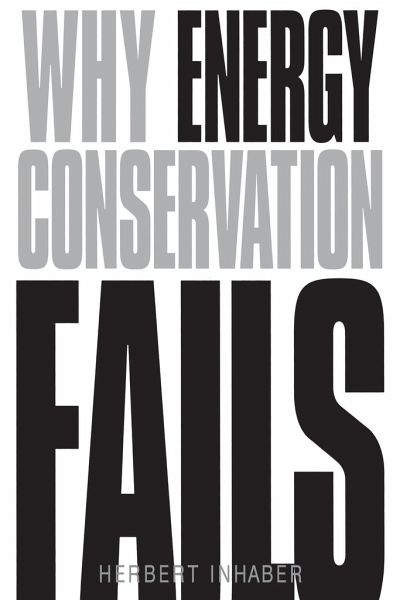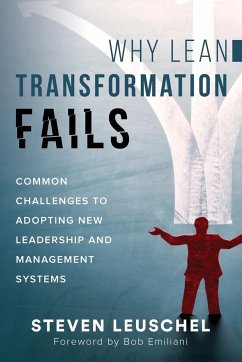
Why Energy Conservation Fails

PAYBACK Punkte
27 °P sammeln!
Energy efficiency and energy conservation are often thought to be the same. They are not, according to Herbert Inhaber. Only when less total energy is consumed by all users will energy actually be saved. Energy efficiency schemes do not accomplish this goal of conservation: when one person or nation conserves energy, there is just more of it for others to use elsewhere. This is the first book to answer, comprehensively and objectively, the question: Do government energy conservation programs hinder or help the nation? Says Inhaber, the fact that billions of dollars have been spent on energy co...
Energy efficiency and energy conservation are often thought to be the same. They are not, according to Herbert Inhaber. Only when less total energy is consumed by all users will energy actually be saved. Energy efficiency schemes do not accomplish this goal of conservation: when one person or nation conserves energy, there is just more of it for others to use elsewhere. This is the first book to answer, comprehensively and objectively, the question: Do government energy conservation programs hinder or help the nation? Says Inhaber, the fact that billions of dollars have been spent on energy conservation programs, without giving a searching look at what has been accomplished, is a national scandal. Clear, concise, and with numerous useful graphs and tables, this book is an important first step toward making us all aware of what energy conservation actually is-and is not-and how it can and should be implemented. This work includes chapters on how conservation is applied in the electric utility world, whether waste truly exists, the economic aspect of conservation, its relation to Marxism, and past examples of conservation failures. Inhaber reviews many of the points that were first made by Stanley Jevons, the father of modern quantitative economics, who stated more than 130 years ago that increased efficiency often produces greater overall energy use, not less. Inhaber concludes that a remedy claimed to cure all ills will cure none. The faith placed in conservation as a solution to a mountain of problems is, in large part, misplaced. The words 'energy conservation' have captivated people of almost all political and philosophical persuasions. My book should cause many people to rethink their blind faith.












